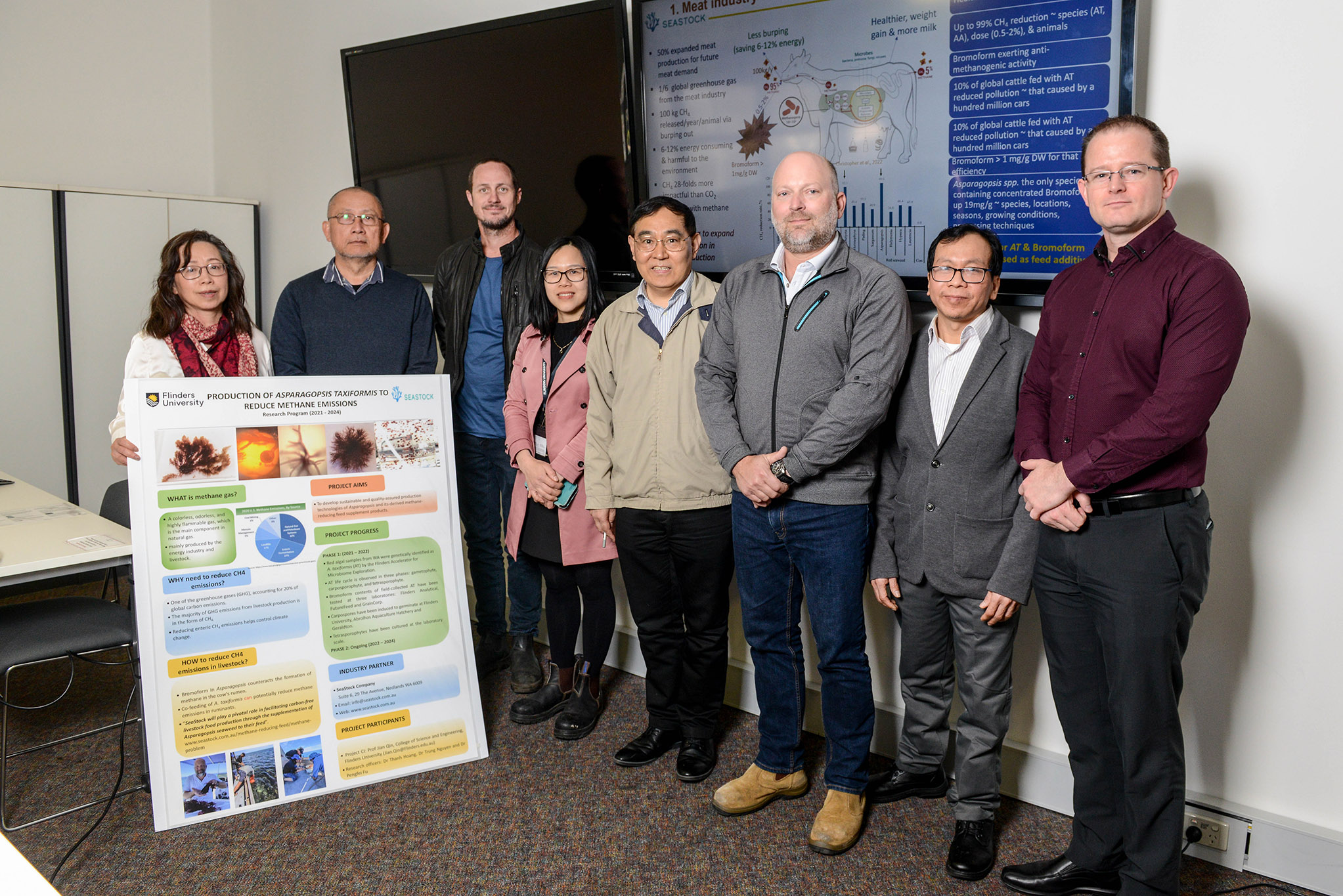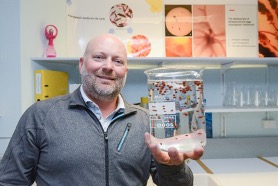
Industry and research partners SeaStock have paid another visit to Flinders University, including the Flinders Accelerator for Microbiome Exploration (FAME) laboratory, to examine the progress of a joint research project.
SeaStock is an innovative WA-based aquaculture company focused on commercialising a natural feed supplement for livestock which is derived from the red seaweed Asparagopsis, which is native to the WA coast.
The Flinders research team is working with SeaStock to develop sustainable, quality-assured technologies focused on deriving methane-reducing feed supplement products from Asparagopsis – which contains a naturally occurring compound known as bromoform, known to counteract the formation of methane in a cow’s stomach.

SeaStock Managing Director Tom Puddy and the company’s Chief Technical Officer, Tom Chaney, spent three days at Flinders meeting with the research team – led by Professor Jian Qin, plus research officers Dr Thanh Hoang, Dr Trung Nguyen and Dr Pengfei Fu – and visited the laboratories to obtain a first-hand update on the research team’s progress.
The workshop enabled the SeaStock team to view the research team’s laboratory facilities, further understand progress the team has made during phase one of the research project and to discuss phase two, which will continue through to 2024.
Phase one of the research project was conducted on-site at SeaStock’s Abrolhos Islands site – where red algae samples were collected – and later in the Flinders labs where it was genetically identified as A. taxiformis by the FAME team.
Flinders researchers have been able to induce and germinate carpospores at the Abrolhos Aquaculture Hatchery, located off the coast of Geraldton. The tetrasporophytes have been successfully cultivated in the lab.
The methane-reducing feedstock is being developed to decrease the methane emissions of ruminant livestock. Methane, one of the key greenhouse gases, accounts for 20% of global carbon emissions and has been identified as a key contributor to climate change.
SeaStock is focused on commercialising the production of methane-reducing feedstock and will play a pivotal role in facilitating the fledgling carbon-free livestock food production industry via the addition of Asparagopsis-based supplements to the diets of ruminant livestock.
The addition of just a small amount of the bromoform-based supplement has been proven to reduce CH4 production by up to 98% and has the potential for use in applications as diverse as sunscreens and skin care products, vaccine adjuvants and meat and seafood analogues.
Phase two of the research project will build on the knowledge and results of phase one, and focus on extracting bromoform from the samples collected, to develop a viable extraction process that is commercially viable in large quantities.
Three Flinders laboratories have participated on this project: FAME, for Asparagopsis genetic identification; Flinders Analytical Lab, for quantifying bromoform content using GC-MS; and the Centre for Marine Bioproducts Development, for standardising and advance bromoform extraction from AT, and aquaculture lab for culturing the seaweed.

